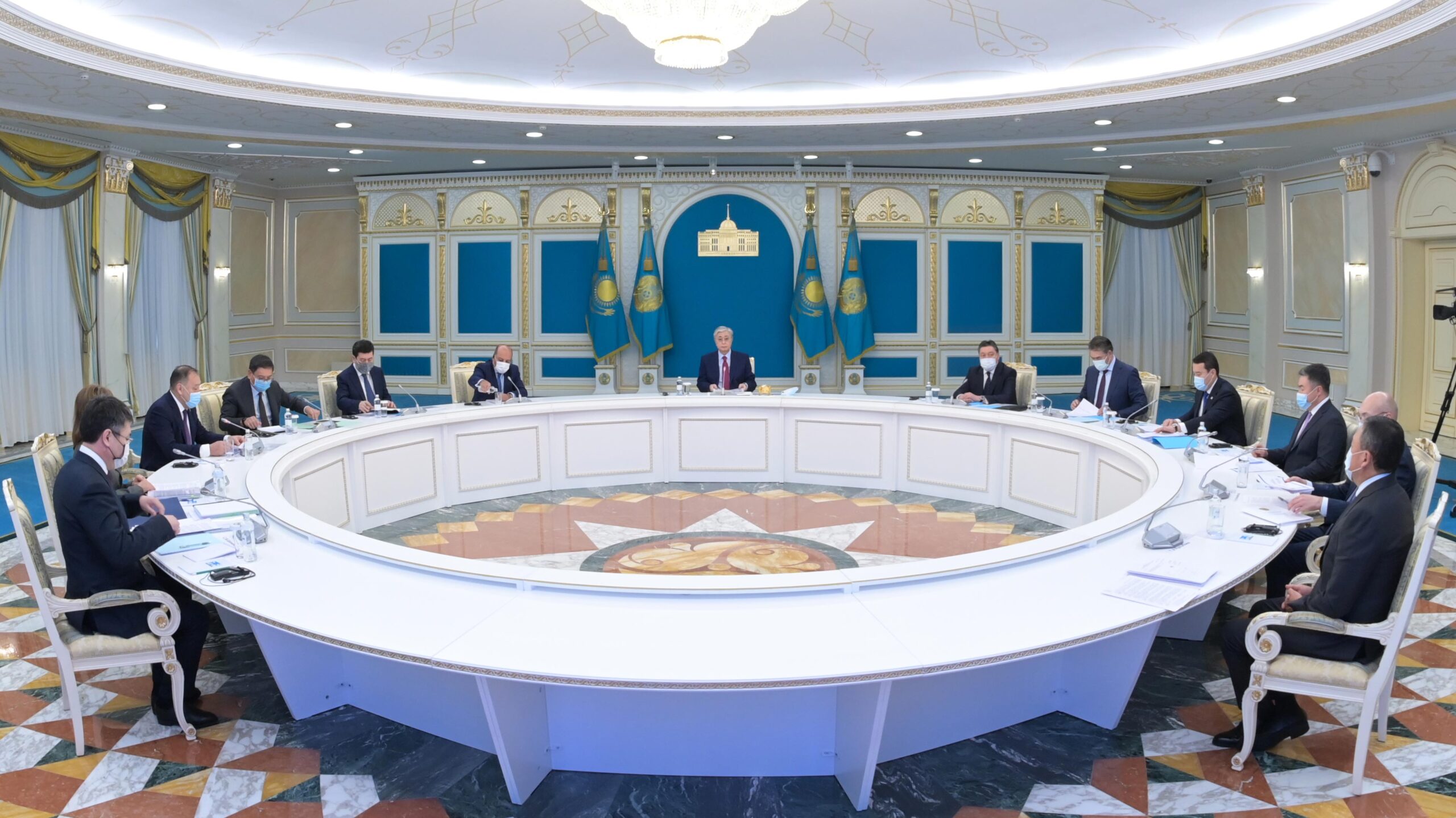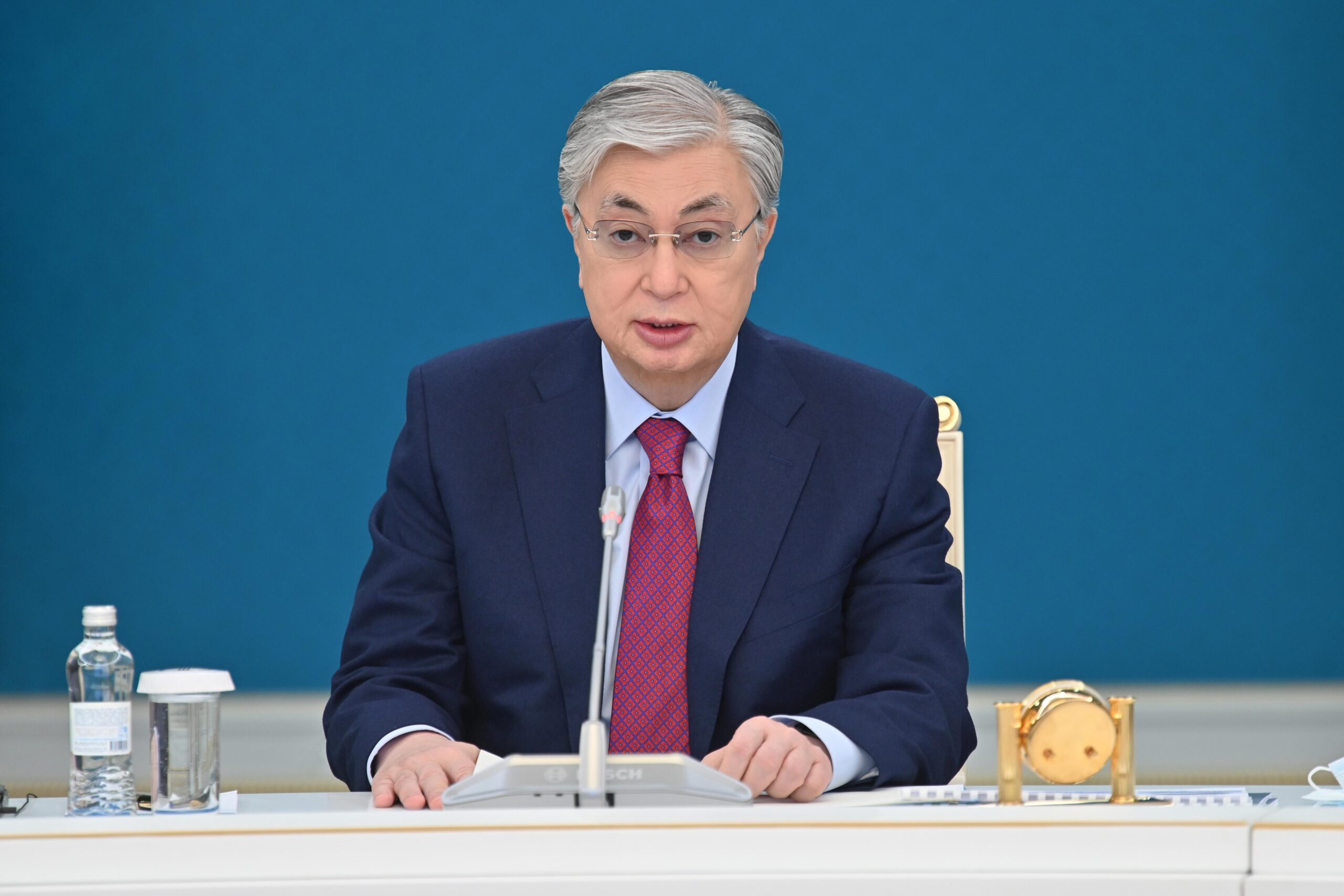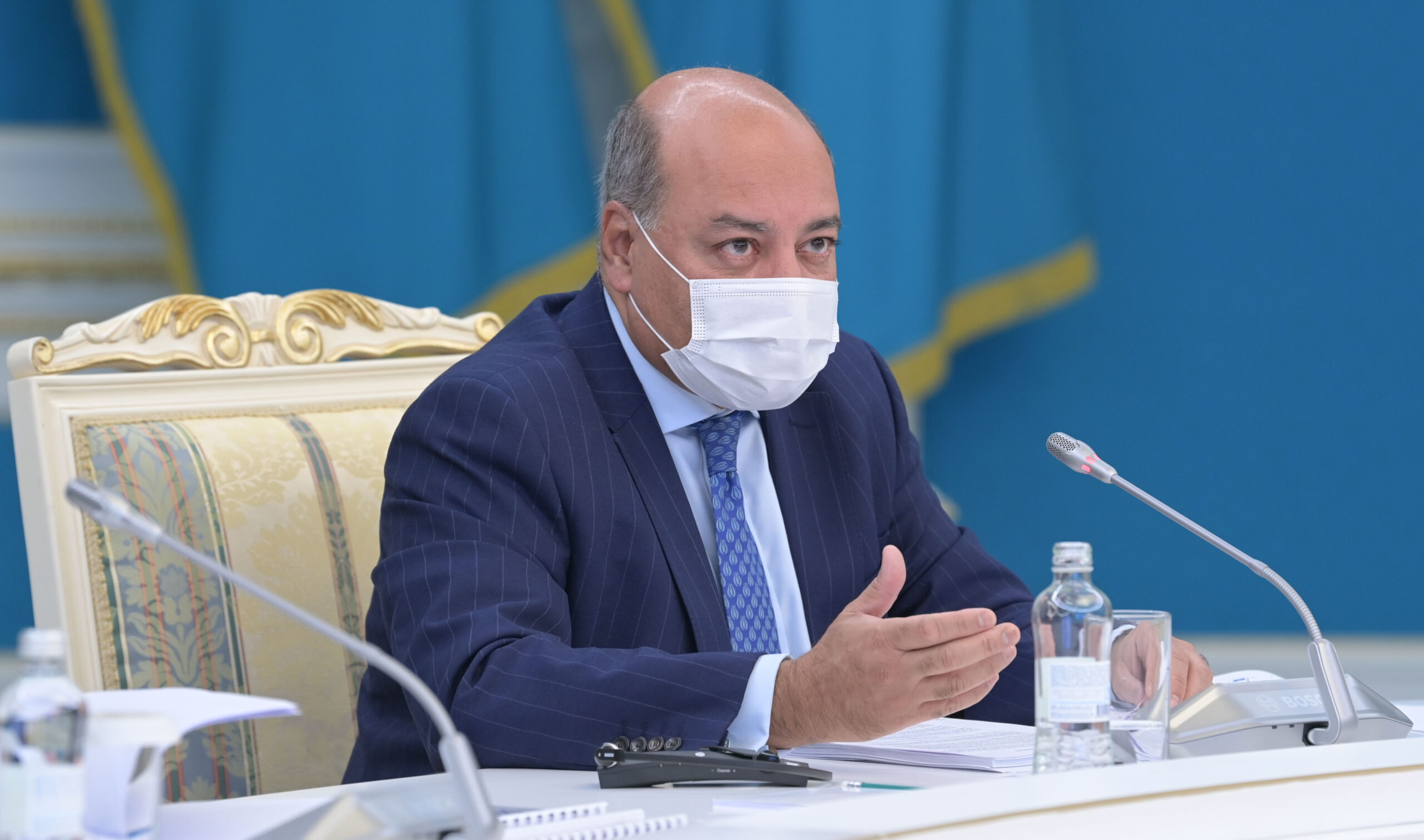NUR-SULTAN – The COVID-19 pandemic has put the lives of millions of people around the world under stress, and in Kazakhstan, it caused income losses and exacerbated existing inequalities, but the government’s response was able to tackle the worst of the economic consequences of the pandemic, said President Kassym-Jomart Tokayev at the Supreme Council for Reforms meeting on Dec. 7, reports the Akorda press service.

The Supreme Council for Reforms meets regularly to discuss and address some of the most acute issues facing the country. Photo credit: Akorda press service
The pandemic was a test not only for global healthcare systems but also for economies. Similar to other countries around the world, Kazakhstan has been prompt in taking measures to tackle the COVID-19 consequences committing 6.3 trillion tenge (US$14.4 billion) for that purpose in 2020.
“I believe that the measures that the government has taken have been adequate. We must learn all the lessons of the pandemic and systematically adapt our social policies to the new realities,” said Tokayev noting the importance of the country’s new Social Code currently in development that, according to him, will become a “key element of the new social contract.”

President Tokayev chairs the council. Photo credit: Akorda press service
The development of the Social Code, which is meant to strengthen social support and ensure social rights and guarantees, began at the initiative of President Tokayev and a working group of more than 100 experts, including deputies, government representatives, non-governmental and international organizations, is involved in the work.
During the meeting, Advisor to the President Sir Suma Chakrabarti and Chair of the Agency for Development and Regulation of Financial Market Madina Abylkasymova presented the report of the advisory committee on effective macroeconomic policy on the development of the banking sector and securities market.

Sir Suma Chakrabarti, who is former EBRD President. is now an Advisor to President Tokayev. Photo credit: Akorda press service
Chair of the National Bank Yerbolat Dossayev reported on the measures to improve the effectiveness of the management strategy of the National Fund and the National Pension Fund, which a few days ago faced public criticism after it raised the threshold level to withdraw pension savings making it more difficult for millions of citizens to use their pension savings for housing purposes.
Dossayev proposed completing the transition to a new strategic allocation, the introduction of ESG principles in the investment process, hedging of the equity portfolio, as well as ensuring the digitalization of asset management processes as measures that will help improve the asset management strategy going forward.
According to the National Bank’s projections, amid a decline in guaranteed transfers, revenues to the National Fund will reach $20 billion from 2022 to 2030 and the National Fund assets will reach US$100 billion by 2030.
The Supreme Council for Reforms was created in September 2020 to serve as a supreme body for finalizing and adopting the nation’s reform plans and ensuring the strategic planning of the country’s sustainable development and the deepening of economic, social, and political reforms. Over the past year, the council, which is chaired by President Tokayev with senior government officials as its members, considered more than 20 issues, covering almost all spheres of the country’s development.
